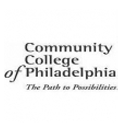Community College of Philadelphia (CCP) is a large public higher education institution located in Philadelphia, Pennsylvania, USA. The following is a detailed introduction to the college:
School History
Community College of Philadelphia was founded in 1965. Its predecessor can be traced back to 1962, when the Philadelphia Commission proposed the establishment of a community college. The college was officially established after the relevant bill was passed in 1964.
Led by the first president, Dr. Allen T. Bonnell, the school initially began teaching in the former N. Snellenburg & Company department store building on South Eleventh Street. By 1967, the number of students increased to 4,365, and reached 6,200 in 1969.
In 1971, the school acquired the third Philadelphia Mint building and began teaching there in 1973. In 1983, the main campus costing $70 million was built and put into use, and the school completed the move from the Eleventh Street location to the permanent main campus.
School size
Campus distribution: The college has four campuses, the main campus is located in the Spring Garden neighborhood 1700 Spring Garden Street, covering an area of about 14 acres, including seven buildings such as the Sports Center and Bonnell Building; the Northeast Regional Center is located at 12901 Townsend Road in the Parkwood neighborhood, which is the school's first and largest regional center; the Northwest Regional Center is located at 1300 West Godfrey Avenue in the Fern Rock neighborhood and opened in 1999; the West Regional Center is located at 4725 Chestnut Street in the Walnut Hill neighborhood, three miles from the main campus, and is expanding its Automotive Technology Center.
Number of students: As of the fall semester of 2020, the total number of students is 13,672, of which 31% are full-time students and 69% are part-time students.
Academic situation
Major settings: The college is divided into seven academic areas, including business, entrepreneurship and law; creative arts; design, construction and transportation; education and human services; health care; humanities and communication; and science and technology, offering more than 100 Associate degree and certificate programs in accounting, anthropology, architecture, art and design, dental hygiene, early childhood education, computer information systems, health sciences, nursing and many other majors.
Teaching model: adopts an open admission policy and recognizes students' practical experience as credits. The college also cooperates with local high schools to provide alternative education programs, college application support and college preparatory courses. In addition, non-credit enrichment courses, job skills training and certification courses are provided through continuous professional development and career training programs.
Faculty: There are 858 academic staff members with a student-faculty ratio of 18:1.
Transfer cooperation: Dual enrollment, core-to-core and program-to-program transfer agreements have been established with more than thirty four-year institutions, making it convenient for students to transfer to these institutions after graduation to continue their studies.
Student Life
Student Organizations: There are more than 30 student clubs and organizations on campus, such as student unions, special interest groups and service organizations.
School Publications: The school has an independently operated and award-winning newspaper, The Pioneer, which is published in both print and electronic versions.
Sports: The school's athletic team is called the Lions, and participates in the Eastern Pennsylvania Athletic Conference (EPAC) of the National Junior College Athletic Association (NJCAA) and other events, and has achieved results in men's basketball, women's basketball, track and field and other events.
Admission and Fees
Admission Requirements: The college has an open admissions policy and no application fee.
Tuition: For the 2020-2021 academic year, the district tuition and fees are 4632 In-state tuition and fees are $8,688 and out-of-state tuition and fees are $12,744.
Financial Aid: 65% of undergraduates receive grants or scholarships, and the average scholarship or grant award is $5,657.
-

Harvard University
-

Massachusetts Institute of Technology
-

South University
-

University of West Georgia
-

Stanford University
-

Northwest Nazarene University
-

Hawaii Pacific University
-

Shorter University
-

Nova Southeastern University
-

Saint Leo University
-

Mesoamerican University
-

Istmo University
-

Mariano Galvez University of Guatemala
-

Regional University of Guatemala
-

Galileo University
-

Francisco Marroquín University
-

Rafael Landívar University
-

University of the Valley of Guatemala
-

University of San Carlos of Guatemala
-

Technological Institute of Tlaxcala Plateau
-

Golfo University
-

Technological University of South Sonora
-

Technological University of Huejotzingo
-

Tizimín Institute of Technology
-

Chilpancingo Institute of Technology

